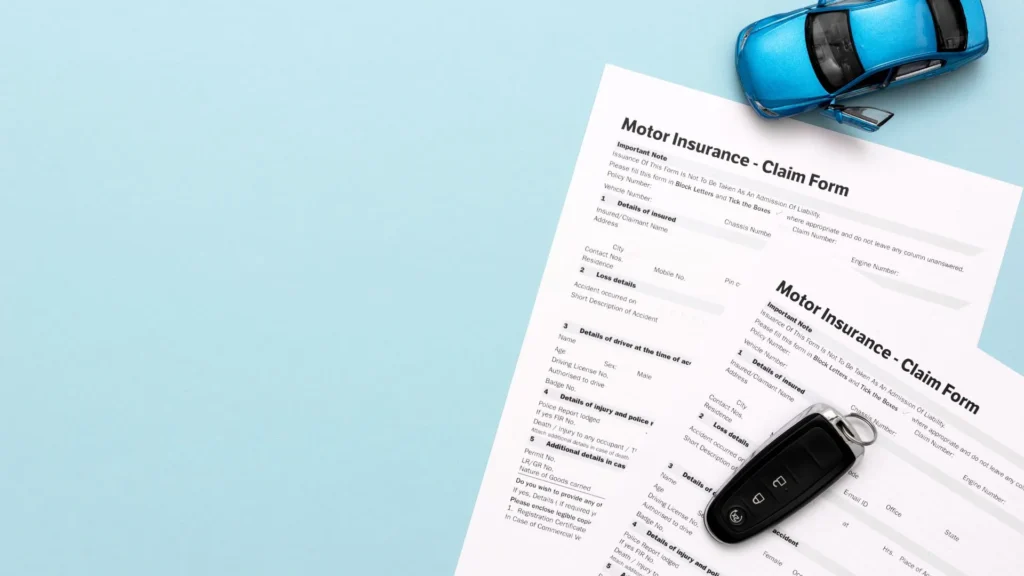Car insurance is relevant for a four-wheeler owner, especially in the United States. Car owners must have auto insurance to protect themselves and their vehicles in the event of an unprecedented accident. But what if you’re unhappy with your current car insurance provider? Can you change car insurance at any time? The answer is yes. You can switch your car insurance company whenever you see fit. Before you decide to change your car insurance, you must compare quotes from different providers with Beem’s online comparison tool to get the best deal and coverage for your budget.
This blog will delve into factors surrounding the possibility of changing car insurance. It guides you through the process of changing car insurance, its benefits, and when it’s most advantageous to make the change.
also know about: when will i get my auto insurance refund
How To Change Car Insurance At Any Time
Change is a constant in life, as are car insurance rate fluctuations. Here’s how to seamlessly transition from one car insurance provider to another:
- Compare Multiple Quotes: The first step in changing car insurance companies is to shop around for better rates. Collecting free online quotes from various insurance providers allows you to discover the best combination of affordability, coverage options, and customer service.
- Contact Your Current Insurance Company: Before making any decisions, contact your current insurer. Inquire if they can match the quotes you’ve received from competitors and understand their cancellation process, which may require advance notice, typically around 30 days.
- Initiate Your New Policy and Cancel the Old One: Once you’ve decided to switch, purchase your new policy and ensure it’s active. Afterward, proceed to cancel your old policy. Be aware of cancellation fees; some companies might charge for early policy termination. Avoiding a coverage gap is essential to prevent legal troubles and higher rates.
- Inform Your Lender (If Applicable): If your car is leased or financed, promptly inform your lender or lease provider about the insurance change. Continuous coverage is typically required, and failing to comply might lead to additional expenses or even vehicle repossession.
Why You Should Change Your Car Insurance Company
Switching car insurance companies can bring significant advantages, with the most apparent benefit being potential savings on your insurance rates. Life circumstances change, and so do insurance rates.
If you’ve experienced alterations like adding or removing drivers, buying a new car, getting married, or moving, you might find better rates elsewhere. Here’s a list of companies offering competitive rates according to a recent survey:
| Rank | Company | Minimum Liability Monthly Rate |
| 1 | Farmers | $46 |
| 2 | USAA | $19 |
| 3 | Farm Bureau | $21 |
| 4 | Progressive | $33 |
| 5 | State Farm | $26 |
| 6 | Geico | $33 |
| 7 | Nationwide | $39 |
| 8 | American Family | $32 |
| 9 | Auto-Owners | $43 |
| 10 | Erie | $16 |
Beyond cost considerations, additional perks like free roadside assistance or gap coverage for leased or financed vehicles might entice you to switch.
When To Change Car Insurance Companies
Selecting the right car insurance company is an ongoing process that requires periodic assessment, not just a one-time decision. While changing car insurance companies can be done anytime, there are strategic moments when it’s particularly advantageous. Here’s a comprehensive guide on considering changing your car insurance provider.
Life Changes and Major Events
Shopping for car insurance is prudent before your current policy is up for renewal, but it becomes even more essential if significant life events occur. It would help if you considered switching when:
- Include or exclude a driver, particularly a teenager.
- Acquire a new vehicle.
- Purchase a new home.
- Relocate to a new address or different state.
- Enhance your credit score.
- Experience a marital status change, such as marriage or divorce.
Driving Record Changes
Changes in your driving record can also prompt the need for a new insurance assessment. It’s a good idea to compare rates if:
- You haven’t had an at-fault accident or a ticket for a few years. Over time, accidents and violations can have less impact on your rates. If you get auto insurance with Beem, it provides coverage for damage to your vehicle, damage to other vehicles or property, and injuries to yourself or others.
- You’ve had an accident or a speeding ticket in recent years that caused your rates to increase. As these incidents gradually fade from your record, you might be eligible for lower rates.
- Insurance companies have varying policies on how long they consider accidents and tickets. Some may stop penalizing you for specific incidents sooner than others.
Switching with Open Claims
Interestingly, you can switch insurance companies even if you have an open claim with your current provider. The open claim won’t be affected; your current insurer will continue to handle the claim as usual. Remember that dealing with two insurers simultaneously might be necessary until the claim is settled.
How To Save Money When You Change Insurance Companies
Transitioning from one insurance company to another offers the promise of cost savings and improved coverage. Still, navigating the process strategically is essential, especially when managing the financial aspects.
The challenge of changing car insurance companies lies in needing your new policy to be in effect before canceling the old one. While refunds for overlapping policies are guaranteed, individuals with limited immediate funds might encounter a hurdle in switching insurers, even if long-term savings are on the horizon. To optimize your financial position while waiting for refunds and ensure a smooth transition, consider the following tactics:
Utilize Credit Card Payments
Leverage the benefits of credit card payments to your advantage. By paying your car insurance bill with a credit card, you gain a grace period until your credit card bill is due, usually a month later. Furthermore, receiving your refund on the same card can expedite the process, as electronic transactions are typically processed faster than paper checks. Some credit cards even offer to earn cashback and other rewards, enhancing your savings.
Promptly Cancel the Old Policy
Act quickly when canceling your old policy after getting a new one. Insurance companies take different times to process refunds after you cancel, usually from a few days to a few weeks. Starting the cancellation process early speeds up the refund process, so you get your money sooner.
Consider Monthly Installments
While paying your insurance bill in one lump sum might yield some savings, opting for monthly installments can be a practical alternative during the transition. Many insurance providers offer the flexibility of smaller monthly payments. This choice may involve nominal installment fees but can prove valuable when managing your budget effectively while switching insurance companies.
Save Your Quote for Future Reference
Nearly all insurance companies allow you to save your initial quote for later use. This feature becomes invaluable if you come across an appealing quote but need more immediate funds for the first payment. By saving the quote, you ensure you don’t miss out on a favorable deal when your financial situation improves.
Conclusion
In conclusion, switching your car insurance anytime allows you to adapt to changing circumstances, financial considerations, and coverage needs. Consider the coverage options, deductibles, and premiums offered by different insurance companies while comparing car insurance quotes with Beem. Whether finding a more budget-friendly option, capitalizing on new life circumstances, or taking advantage of better coverage perks, changing car insurance can offer you substantial benefits. So, the next time you ponder, “Can you change car insurance at any time?” remember that not only can you do so, but you also have the potential to enhance your coverage and save money in the process.
FAQs
Q. Can you change car insurance at any time?
You can switch car insurance anytime, not just during policy renewals. You can cancel midyear for a prorated refund, though fees may apply based on your insurer.
Q. What’s the process of changing car insurance?
Compare quotes, contact your current insurer for cancellation details, and switch to your new policy. Cancel the old policy promptly to prevent coverage gaps.
Q. Why consider changing car insurance companies?
Changing can yield significant savings. Life changes like new drivers, cars, marriage, relocation, or better credit scores affect rates. Different insurers offer unique benefits to suit your needs.




























